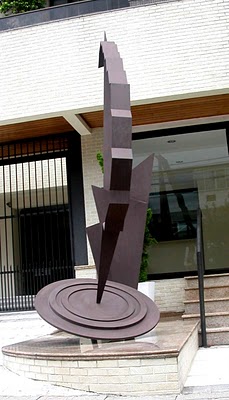Yone Noguchi
Yone Noguchi, born -and known in JAPAN aS-Yonejiro Noguchi (野口米次郎 Noguchi Yonejirō, December 8, 1875 - July 13, 1947), was an influential writer of poetry, fiction, essays, and literary criticism in both English and Japanese.

It was in the darkest age of China that some poet declared, "To learn how to read is to learn how to be sad."
Autumn, -season of mists and mellow fruitfulness,
close bosom-friend of the maturing sun,
- is the book season of the year.
Here by a little hibachi, sipping tea ,the late Naofumi Ochiai's book of uta "Haginoya Kashu."
Dear, sad Haginoya!
How he loved the hagi flowers
How he sings of them--
Yes, the hagi it is,
The hagi is my life,
How could I forget
My own heart!
. . The modern poets may embrace a variety of rhythm and technical effects, and they may excel in descriptive song and external portraiture. But, alas, they lost the golden song of heart and love. Building of a composite period here in Japan.
Our song is growing quite idyllic.
Hear his simple muse--
From beyond the lake,
The temple bell is heard to-day too,
And the day, too,
Passes away.
Blown and blown and beaten
By the Autumn wind,
Yet the suzuki reed puts out its head,
-- Oh, how it is like me!
I push my sick body on
To the verandah, and I set
The butterfly free
From a spider's net.
Forgetting the floating world,
With thee, this day,
I gaze on
The white mountain cloud.
After the goddess of my dream
I [sought],
This morn:--
Lo, the lily white!
Are they the hair jewels
Forgotten by an angel,
At eve?
Oh, dews upon the hagi flowers!
Thou art ill,
I am too.
What misery, what misery
In this world where we have so much to do!
The Autumn night is deep:
Canst [thou] hear
The passion talk of the man-star
And woman-star met together?
He has been dead some ten years. His last uta is sad indeed:
O fall of leaves, I'll dream
On the last silence of thy passing way,
And sleep,
This night.
I find his sweet temperament and also his unspeakable sadness in the following poems:
I cannot think of them
As the Spring things:
Yea, how lonely and quiet
Are they, --those white wistaria!
So, wistaria
Like the Yellow cloud!
How longing
Toward the Lord Buddha!
And when I try to find his highest lyrical loftiness I read the following. They are of the real poetical creation according to our Japanese judgment, --the work which only the soul steeped in poetry could utter:--
Suppose the morning stars
Fall and break?
Do they sound
Like my own song?
I will sleep on Fuji's Mountain top,
And see whether my dream
Rise to the heavens,
Or fall to the earth.
In the midnight,
I awake, and think over the song:
Oh, am I not
The god?
As a cataract
It once has fallen,
And now it rises up,---
Lo, white mountain cloud!
What difference they show from the somewhat suffocated English poems! It is a delightful change to read after Keats and Tennyson. Any one who has such tenderness and fancy in heart, I should say, could appear as a genuine poet under any clime. It is a pity that such simple song is dying away in Japan.










1 comment:
Thanks for the into' I must do a bit of research.
Post a Comment